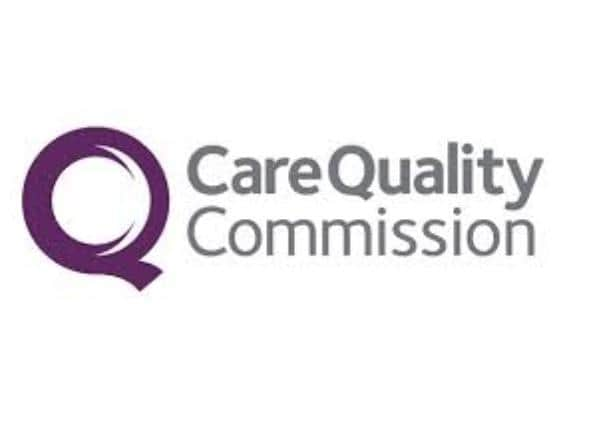Bedford Hospital’s maternity services ruled 'Inadequate' and trust warned it must make significant improvements
and live on Freeview channel 276
The Care Quality Commission (CQC) has warned Bedfordshire Hospitals NHS Foundation Trust that it must make significant and immediate improvements to the maternity services at Bedford Hospital.
CQC last inspected the maternity service at Bedford Hospital in August 2018, during that inspection several concerns were identified, and the service was rated 'Requires Improvement' overall.
Advertisement
Advertisement
It was then served with requirement notices for regulation breaches.


In April last year, Bedford Hospital NHS Trust and Luton and Dunstable University Hospital NHS Foundation Trust merged to form Bedfordshire Hospitals NHS Foundation Trust.
As a result, the maternity services within Bedford hospital are now under a new executive director team.
Routine inspections were put on hold in March 2020 as a result of the COVID-19 pandemic.
Advertisement
Advertisement
However, inspectors returned to the hospital on 5 November 2020 to carry out an unannounced focused inspection of the maternity services, after staff raised concerns about the safety of the service which could lead to risk of harm to patients.
Following this inspection, the overall rating for the service changed to Inadequate; safe and well-led also changed to Inadequate and the rating for the effectiveness of the service was revised to Requires Improvement.
CQC also issued the trust with a warning notice in relation to its maternity and midwifery services and put conditions on the trust’s registration.
The conditions required the provider to ensure that staffing is effectively assessed, reviewed and escalated to maintain safe staffing in the maternity unit by 1 December 2020.
Advertisement
Advertisement
It was also required to report the results of audits undertaken, as well as action taken to reduce the risk of reduced staffing, by 14 December, and on a monthly basis thereafter.
CQC’s Chief Inspector of Hospitals, Professor Ted Baker, said: “We rated Bedford Hospital’s maternity services Inadequate overall due to concerns about staffing levels, insufficient training for staff and a poor culture amongst employees. Many of the concerns we had during this inspection had previously been highlighted in 2018.
“As a result, we took urgent action to ensure that people using the services are not exposed to a risk of harm and served a warning notice which sets out a number of actions the trust must take in order to comply with its legal obligations.
"We also imposed urgent conditions on the trust’s registration as a result of our concerns about staffing.
Advertisement
Advertisement
"The trust was given two months to rectify the issues and make the required improvements.
"I am pleased to report that under the leadership of the new executive team, the trust is taking these extremely seriously.
"We recognise that some of the planned improvements have been delayed as a result of the impact of the COVID-19 pandemic, however, since our inspection, the trust has positively engaged with CQC, NHS England and NHS Improvement, and other stakeholders, and a comprehensive improvement plan has now been put in place for the service.
"Many of the improvements have already been made and staff have responded positively to these.
Advertisement
Advertisement
"We will continue to monitor and work closely with the trust to support it in embedding these further.
“We would encourage all providers to adopt an open culture to ensure that staff, as well as patients and their families, feel that they can raise concerns without fear of reprimand.
"This is particularly important in the current climate when services are under more pressure than ever to deliver safe, quality care.”
David Carter, Chief Executive at Bedfordshire Hospitals said: “We took immediate action in the areas identified by the CQC and will continue to make improvements.
Advertisement
Advertisement
"As an organisation committed to delivering excellent care, the CQC feedback was disappointing for us to hear but we are focussing our effort on ensuring that the Bedford maternity service is able to meet the standards of care we aspire to.
"We are continuing to recruit more qualified midwives, and we are ensuring that we fully support and value those staff as they perform their vital role in caring for our local population.
“Safety for mothers and babies in our unit remains excellent compared to our peers and this is endorsed by the positive feedback we continually receive from our patients.”
The service was rated Inadequate for the following reasons:
- The service did not always have sufficient staff with the right qualifications, skills, training and experience to provide the right care and treatment and keep women safe from avoidable harm.
Advertisement
Advertisement
- Not all staff were up-to-date with their training; staff often missed training and worked though breaks as a result of staffing shortages.
- In an emergency, the attendance of a consultant was not always immediate.
- Staff did not always complete risk assessments for each woman and nationally recognised tools to identify women at risk of deterioration were not always used.
- Although staff recognised incidents, they did not always have time to report them, posing a risk of harm to patients.
Advertisement
Advertisement
- Inspectors found out-of-date policies which meant staff may not be using current evidence-based guidance in the delivery of care and treatment.
- Although leaders were aware of the challenges the service faced, they did not always address concerns in a timely fashion and did not have processes in place to effectively improve the quality of its maternity services and standards of care.
- Staff did not always feel supported, respected and valued, they were not encouraged to raise concerns to leaders and when they did, their views were not always listened to or acted upon.
However, there were processes in place to ensure that equipment was checked daily and clinical waste was managed well. Infection risk was also well controlled, and medicines were well managed.
Both the premises and equipment were visibly clean, staff knew how to protect women from abuse and the service used monitoring results to improve safety.